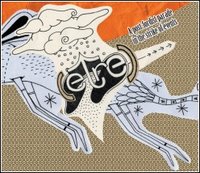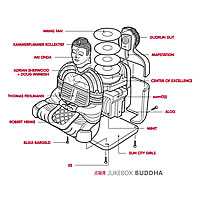
To Rococo Rot - Taken from Vinyl (Staubgold)
Geir Jenssen - Cho Oyu 8201m: Field Recordings From Tibet (Ash International)
Christopher Willits - Surf Boundaries (Ghostly International)
Dollboy - Casual Nudism (Arable)
Solo Andata - Fyris Swan (Hefty)
[etre] - A Post-Fordist Parade in the Strike of Events (Baskaru)
Various - Thankful (Temporary Residence)
Jan Jelinek - Tierbeobachtungen (~Scape)
Conjoint - A Few Empty Chairs (Büro)
The London Sinfonietta - Warp Works & Twentieth Century Masters (Warp)
Various - Project Bicycle (Ache)
Rauhan Orkessteri & Lauhkeat Lampaat - Sylissain Oot (Ache)
Scott Solter - Canonic (Hometapes)
Track Listing
To Rococo Rot - Days between stations
Geir Jenssen - Camp 1.5: Mountain Upon Mountain
Christopher Willits - Colors Shifting
Dollboy - Pauline's Shades
Solo Andata - Coastal Road Thoughts
[etre] - Dogs From My Childhood: Multiple White
Eluvium - Carousel
Jan Jelinek - Happening Tone
Conjoint - Conjoint With Clarity
London Sinfonietta - Aphex Twin Prepared Piano Piece 2
Tu M' - Ladri Di Biciclette
Rauhan Orkessteri & Lauhkeat Lampaat - Bile-Kalkkuna
Scott Solter - Witkin Dub
Listen to Surgery 33 click here














